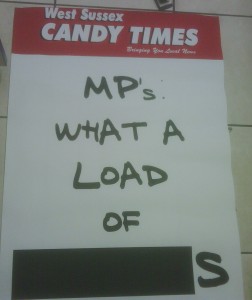Journalism.co.uk feels like its gone back in time today – specifically to autumn last year when regional newspaper groups, unions and industry bodies were voicing unanimous opposition to the BBC’s plans to increase its local video news content.
Well, another year, another video plan – and more opposition.
Yesterday the corporation announced an agreement to share news video from four subject areas with the Guardian, Telegraph, Daily Mail and Independent websites. The clips will appear in a BBC-branded player and run alongside the papers’ own news coverage.
In the announcement, the corporation suggested it would extend the plans to other newspaper websites – and asked third parties to register their interest.
The reaction
Welcomed by its launch partners (The Telegraph described the deal as ‘a step in the right direction’) – the plans were quickly denounced by commercial rivals ITN:
“The BBC’s plans to offer free video content to newspaper websites risk undermining the demand for content from independent news providers, potentially undercutting a very important revenue stream,” said ITN CEO John Hardie in a release.
“The pressure on commercial news suppliers has never been greater which is why ITN has led the way in opening up valuable new lines of business, and the BBC’s latest move risks pulling the rug from under us.”
According to a MediaGuardian report, News International says the arrangement is far from a ‘free deal’ for the papers, but rather free marketing for the BBC, which will lead to less diffentiated content on newspaper websites in the UK.
Meanwhile the Press Association said it had spoken with the BBC Trust about the plans before they were announced and was hoping for a market impact assessment – a process it says cannot now be completed because of yesterday’s launch. In a statement given to both Press Gazette and MediaGuardian, a spokeswoman for the PA said there were other ways for the BBC to work with commercial rivals, such as by sharing facilities.
The PA launched its own video newswire for newspapers earlier this year and has said the BBC’s plans undermine investment in video by commercial players.
The questions
Arguably, providing a pool of news video for diary events/supplementary content could free up the titles’ staff to cover original content and produce more multimedia of their own. A similar argument to the PA’s recent announcement of a ‘public service reporting’ trial.
One question that should be asked – hinted at in Alick Mighall’s blog post on the matter – how will the commercial details be hammered out? Will the BBC add pre-roll ads for BBC programming to the clips; and what if a pay wall is erected in front of the video players?


